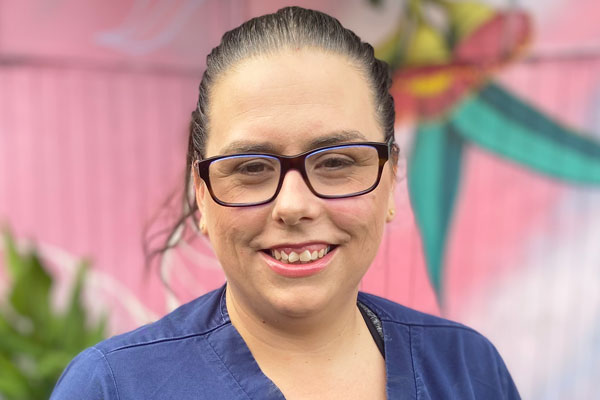
Laura White
TPCH’s Internal Medicine Unit has recently welcomed a new nurse navigator to support patients with cognitive impairment.
Laura White is TPCH’s Nurse Navigator Cognitive Advocate, assisting with the specialised care and management of patients with acute cognitive conditions including dementia and delirium.
Working with teams throughout TPCH, Laura’s role involves developing care plans to help manage the behavioural and psychological symptoms of patients, as well coordinate their care journey when they leave hospital. She also educates staff and consumers about cognitive impairment, and facilitates and supports research and quality improvement projects aimed at improving outcomes for people with cognitive impairment.
“Patients with cognitive impairment can display extreme behavioural and psychological symptoms which can be very challenging to manage. Patients can experience confusion, disorientation, agitation and distress,” Laura said.
“People can hallucinate and are often out of touch with their surroundings. They may not understand we are trying to help them. It can be scary for patients, their carers, and staff looking after them.
“My role is to put plans in place that help the person, their significant others and staff manage the symptoms of cognitive impairment, as well as organise the ongoing care and support these patients needs as the move through the healthcare system and discharge.”
Having completed research into management practices of staff caring for people with delirium, and worked in mental health, medicine and surgery, Laura is familiar with the various challenges in managing the care of patients with cognitive impairment.
She has also had her own personal experience of caring for her grandmother who had dementia and delirium, which has served as a motivation to improve the journey of patients and families impacted by cognitive impairment.
Laura said that supporting people with cognitive impairment can be very stressful and demanding on families.
“They often don’t know where to turn to get help or how to navigate the many health care services that are available, particularly when a patient is diagnosed for the first time,” Laura said.
“Having had a loved one with dementia has allowed me to see things from the other side of the bed.
“It inspires me to be an agent for change in the way we care for people with cognitive impairment.”